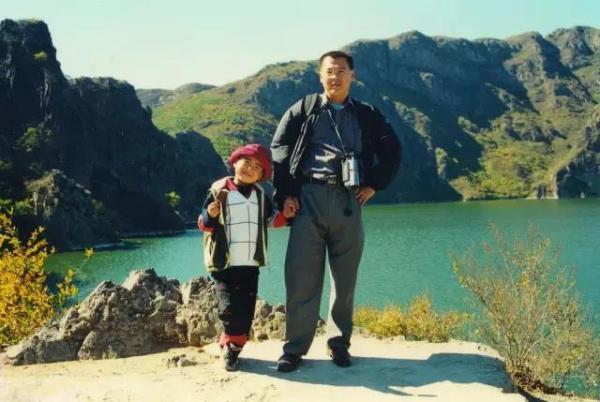
The father and his son. (Photo/Hangzhou City Express)
A Chinese father's letter to his post-90s son to "end their father-son relationship" and become "brothers" has sparked controversy and prompted people to reflect on their relationship with their parents.
The statement, titled Guan Shaochen, I will end the father-son relationship with you, was published in City Express, a local newspaper in Hangzhou, Zhejiang province, on Feb 15.
In the letter, the father first recalled the intimate moments he and his son shared when he was a child.
"When you were a boy, you said I was your hero. You liked following me on almost every occasion - whenever I went to work, to gatherings, or was on business travel."
"I taught you how to play Chinese chess, poker and ping pong… We played video games late into the night and were scolded by your mother."
As the boy grew older, communication between father and son became less and less, the father said in the letter.
"You started ignoring me. You blocked me from your WeChat Moments (a popular Chinese social network). When I call you, you leave the phone on while doing your own business. You rarely come back home and when you do, your eyes are glued to the mobile phone or the TV. When I approach you, you walk away."
"There seems to be a spring between us – the harder I try to get closer to you, the farther you stay away from me."
The father said that he tried to walk into the world of his son by acquainting himself with things the post-90s are interested in. He came to know the websites and video games they like and the popular stars they are obsessed with.
In the later part of the letter, the father said he will "end the father-son relationship" with his son and became a "brother" to him.
"In my eyes, our relationship should be like brothers, hand in hand and doing great things together."
"In the past 20 years, you were my son; in the next 60 years, you are my brother!" the father concluded.
The post-90s need to talk with people sharing the same values with them, the City Express commented in an article published on its public account on WeChat. They are the generation that dares to "live on their own terms", and the world would not be as lively and colorful without them, the paper said.
While publishing a personal letter in a newspaper seems to be unorthodox, the father expressed what many parents want to say. The father is not wrong, nor is his son. The problem results from the generation gap that lies between them, said the article.
The generation gap might be hard to bridge. However, if a father tries to understand the world of his son and communicate with him, the "gap" is only a piece of paper to be poked through, the article said.
Netizens have mixed views about the news.
An internet user on Sina Weibo, the Chinese version of Twitter, said: "It is essentially a (moral) hijacking, a typical Chinese way of parenthood. If your son has his hobbies, why must you approach him and play up to him. You could enjoy your own life and lead a wonderful life yourself. Then maybe your son will see you as a hero again."
Another internet user is on the side of the father, saying: "I am about the same age of the son. I feel sad for the father. I think it is worth spending some time to make my father happy."


















































